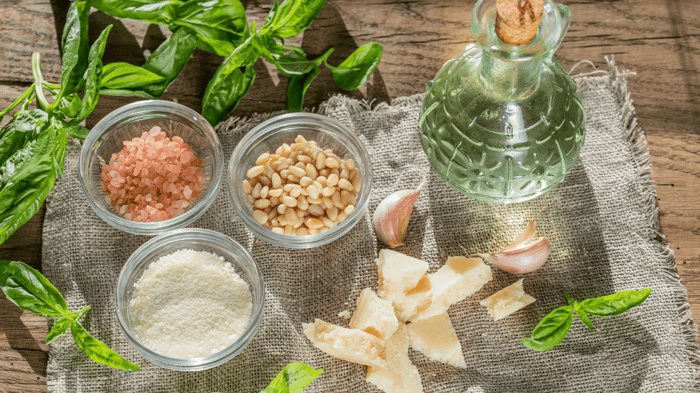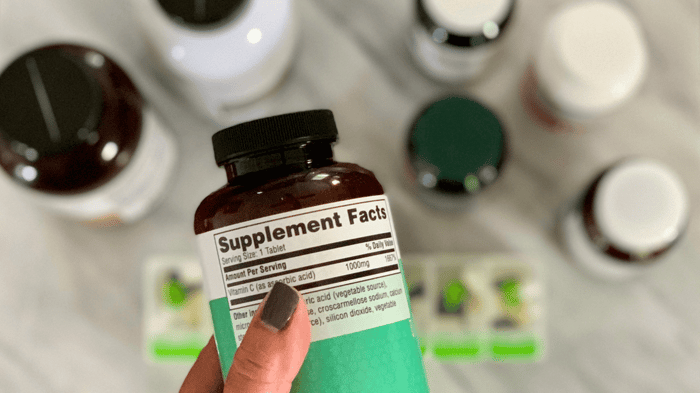Table of Contents
When we talk about self-care, people often think of skincare routines, gym schedules, or maybe that morning smoothie packed with greens. But here’s the truth: intimate health deserves just as much love. The foods we eat, the ingredients in our care products, and even our daily habits all play a huge role in how comfortable, balanced, and juicy we feel.
Natural ingredients can help maintain a healthy vaginal environment by supporting beneficial bacteria, reducing irritation, and protecting against common infections. At the same time, lifestyle choices—hydration, clothing, diet—either support that delicate balance or throw it completely off.
And let’s be honest: harsh products, unnecessary chemicals, and sugar overload? Not exactly your vagina’s best friends. The good news is that nature has already given us a toolbox full of solutions—probiotics, plant-based foods, herbs, and clean supplements that work with your body instead of against it.
Why Natural Ingredients Matter for Vaginal Health
Your vagina isn’t just another body part—it’s a self-regulating ecosystem with its own microbiome, pH balance, and protective defenses. When you give it the right support, it thrives. When you bombard it with irritants or starve it of nutrients, you feel it: dryness, infections, discomfort, or imbalances that just don’t go away.
Research shows that beneficial microbes like Lactobacillus are the VIP guests in this ecosystem. They produce lactic acid, hydrogen peroxide, and natural antimicrobial compounds that keep harmful bacteria in check. Certain foods and herbs—like cranberries, garlic, or fermented goodies—encourage these friendly bacteria to flourish. Others, like processed sugar bombs, do the exact opposite.
So vaginal health is not just about what you wash with. It’s also about what you eat, what you drink, what fabrics you wear, and the ingredients you let into your body.
Fundamental Natural Ingredients for Vaginal Health
Let’s dive into the natural ingredients that consistently show up as champions for vaginal health. These aren’t hype; they’re backed by research, tradition, and thousands of women who’ve felt the difference.
Probiotics and the Role of Lactobacillus
If you’ve heard one word associated with vaginal health, it’s probably probiotics. And for good reason.
Probiotics containing Lactobacillus strains help maintain that slightly acidic vaginal pH that bad bacteria absolutely hate. They also produce antimicrobial compounds, making the vaginal environment less hospitable to troublemakers like Gardnerella vaginalis.
Lactic acid lowers vaginal pH.
Hydrogen peroxide & bacteriocins act as natural antimicrobials.
Competition for adhesion sites makes it harder for harmful bacteria to stick around.
Adding probiotics into your life doesn’t have to be complicated. Yogurt with live cultures, kefir, sauerkraut, and even supplements can tip the balance in your favor. For women with recurrent BV, probiotics combined with lifestyle shifts may reduce recurrences compared to antibiotics alone.
Cranberry Juice for Urinary Tract Support
Cranberries are like the OG superfruit of women’s health. The compounds inside, called proanthocyanidins, prevent bacteria like E. coli from clinging to the bladder wall. That’s why cranberry juice and extracts are often recommended for UTI prevention.
Now, cranberries won’t “cure” a vaginal imbalance, but they can indirectly help by keeping UTIs at bay. Fewer infections mean fewer antibiotics, which means less disruption of your delicate microbiome. Just make sure you’re choosing unsweetened cranberry juice or concentrated supplements—loading up on sugary cranberry cocktails defeats the purpose.
Hydration and Water Intake
Water might seem too basic to matter, but it’s essential for intimate health. Staying hydrated helps flush out bacteria from the urinary tract, supports natural lubrication, and reduces irritation.
Dehydration can show up as dryness, discomfort, or even recurrent UTIs. On the flip side, consistent hydration helps your body transport nutrients where they’re needed and keeps tissues supple. Herbal teas without added sugar also count toward your daily intake.
Leafy Greens and High-Fiber Foods
Spinach, kale, Swiss chard—these leafy greens bring vitamins A, C, and K to the table, plus magnesium and iron. They support immune function and tissue repair, which are both vital for keeping vaginal balance intact.
High-fiber foods like oats, bran, and fresh vegetables improve digestion and indirectly support vaginal health through the gut–vagina axis. A happy gut often equals a happy vagina. Plus, fiber helps regulate blood sugar, keeping yeast overgrowth in check.
Balancing the Vaginal Microbiome Naturally
Your vaginal microbiome is a fragile community, and what you feed it really matters. Here’s how diet and lifestyle can tip the scales in your favor.
Fermented Foods and Gut Health
Fermented foods like yogurt, kefir, kimchi, and miso bring live microorganisms into your system. They strengthen gut diversity, which directly influences vaginal health. Women with higher levels of Lactobacillus usually enjoy fewer infections and more stability.
A daily serving of unsweetened yogurt with active cultures? A simple, tasty step toward better balance.
Prebiotics in Diet
Prebiotics are like fertilizer for your good bacteria. Garlic, onions, asparagus, bananas—all of these fibers reach the gut undigested and feed Lactobacillus and Bifidobacterium.
Stronger gut bacteria → better immune function → a vaginal microbiome that resists imbalance.
Almonds and Healthy Fats
Almonds deliver vitamin E, magnesium, and healthy fats that support hormone balance. A balanced hormonal environment helps keep vaginal pH acidic, discouraging bad bacteria.
The monounsaturated fats also fight inflammation, which helps protective bacteria thrive. Think of almonds as snack-sized defense boosters.
Dietary and Lifestyle Practices for Optimal Vaginal Function
It’s not just about ingredients—it’s about daily habits. Small choices add up over time.
Maintaining Vaginal pH Balance
A healthy vaginal pH sits between 3.5 and 4.5. Diet rich in plants, whole grains, and probiotics encourages Lactobacillus dominance. This keeps infections at bay and maintains long-term health.
Hydration supports lubrication, while cutting back on sugar keeps yeast under control. It’s all about balance, not restriction.
Supporting Lubrication and Comfort
Natural lubrication is influenced by hydration, hormones, and diet. Omega-3 rich foods like salmon, walnuts, and flaxseeds boost tissue flexibility. Antioxidant-packed fruits and vegetables enhance blood flow, improving moisture and comfort.
Staying hydrated is crucial. Water and herbal teas support lubrication, while caffeine and alcohol can dry you out.
Cotton Underwear and Breathable Fabrics
What you wear matters. Cotton underwear and loose clothing help keep the area dry and airy. Synthetic fabrics? They trap heat and sweat, creating the perfect playground for yeast.
Quick swaps—like changing out of sweaty workout gear ASAP—make a huge difference.
The Flower Power® Perspective
At Flower Power®, we believe your vagina deserves VIP treatment. No shame. No taboos. Just real talk, fun vibes, and clean solutions that respect your body.
That’s why we created She Juicy: a plant-based, hormone-free supplement designed to bring back your natural moisture. Powered by Slippery Elm Bark, amino acids, and minerals, She Juicy™ works with your body to support lubrication, comfort, and confidence.
Because natural vaginal health isn’t just about probiotics or leafy greens—it’s also about giving your body direct support when it needs it most.
Final Thoughts
Your vaginal health is shaped by what you eat, drink, wear, and put on your body. Natural ingredients—from probiotics to cranberries—offer powerful tools to keep your intimate ecosystem thriving. Combine them with mindful habits and clean supplements, and you’ll be setting yourself up for long-term comfort and confidence. Discover She Juicy and feel juicy again—naturally.
FAQs
What vitamins are best for vaginal health?
Vitamin D for immunity, vitamin E for tissue repair, and B vitamins for cell health.
What foods help prevent dryness?
Hydration is key. Omega-3 foods like salmon and flaxseeds, plus plenty of fruits and vegetables, help maintain natural moisture.
What foods maintain healthy pH?
Fermented foods, cranberries, and fiber-rich meals all support acidity and microbial balance.
Which foods should I avoid to lower BV risk?
High-sugar and processed foods, fried meals, and red meat in excess.











